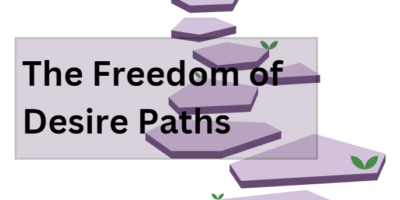Although people always seem to perceive the world they live in as being mired in crises to the edge of a catastrophic tipping point, the last five to ten years have an especially good argument to why today, we really mean it. For the first time since World War II, it is becoming very clear that a massive overhaul of global financial systems, reigning economic paradigms, and governance structures is truly needed. We see these symptoms as the EU struggles to protect its member countries from an economic meltdown, the civil war in Syria continues, Mexico’s drug war escalates, and Canada becomes the first and only country to formally withdraw from the Kyoto Protocol. This time presents never-before-seen challenges and a world of opportunity for Canada to redefine itself as a country acknowledging the dysfunctions of today’s systems and venturing innovative policies to position us to survive, thrive, and lead the world through similar reforms.
Although we have maintained a relatively strong economy (despite $114 billion in poorly publicized bailouts, according to the Canadian Centre for Policy Alternatives), an incredible resource wealth (land, petroleum, minerals, lumber, fresh water), and the world’s most functional multi-culture, we continue to entrench ourselves in blatantly irresponsible policies. Luckily, the public is becoming more disillusioned with this course of action and the myth of Canada’s Samaritan purity. The Walrus magazine’s April issue features “We are peacekeepers no more” as a cover story. A recent Nanos poll shows the NDP as now having as much support as the incumbent Conservative government. Canadians may even be becoming more aware of the harmful practices of our industries overseas, especially mining companies, who are headquartered in Canada more than anywhere else.
This contrasts some recent actions by the Canadian International Development Agency (CIDA). CIDA is currently paying money directly to mining companies to support “corporate social responsibility” activities. The degree to which these programs actually help people is extremely debatable. These initiatives are widely considered to undermine sustainable democracies and economies while giving marketing appeal to sponsoring firms.
Furthermore, Canadian mining companies have a history of human rights and environmental abuses and continue to have allegations made against them. These crimes are often never formally investigated or overruled by free trade agreements, and include forced displacement and disemployment, hiring of security contractors and paramilitaries responsible for rapes, beatings, and killings, and pollution of watersheds with tailings. A 2009 report by Mining Watch Canada examining the Colombian operations of B2Gold, Greystar Resources, Colombia Goldfields, and Nexen Ltd finds “striking correlations … where investment … takes place and rights abuses, ranging from murder and massacres and related massive land and property theft to violations of the rights to freedom of movement and to a healthy environment” and that “human rights violations are linked to efforts by those behind Colombia’s murderous paramilitaries to create conditions for investment from which they are positioned to benefit”; a 2011 Human Rights Watch report on Barrick Gold’s Porgera Mine in Papua New Guinea observes “a pattern of violent abuses, including horrifying acts of gang rape, carried out by members of the mine’s private security force”, “extrajudicial killings and other violent abuses against illegal miners and other local residents” and “[the discharge of] six million tons of liquid tailings (mine waste) into the nearby Porgera River each year”.
Even worse: these decisions are being validated by major aid organizations. Plan Canada, World University Service of Canada (WUSC), and World Vision Canada are all currently in partnership with CIDA to prop up the activities of Barrick Gold, IAMGOLD, and Rio Tinto Alcan. These partnerships have been condemned by activists in Canada and human rights advocates abroad. “The solution is not to mediate and negotiate based on what has already been done, and no ‘social works’ carried out with the mining companies can compensate for the damage done, particularly in the face of rights having been violated” says Miguel Palacin Quispe of the Andean Coordinator of Indigenous Organizations.
As young people with at least 60 years left to enjoy being alive on this planet, it is regrettable that these decisions continue at so many levels of power while they are so glaringly misguided. As you move through co-op interviews or towards graduation, an informed mind and voice calling for the industries and governments we work for to be more responsible will be pivotal in ensuring we can all make the most of our time here.







Leave a Reply